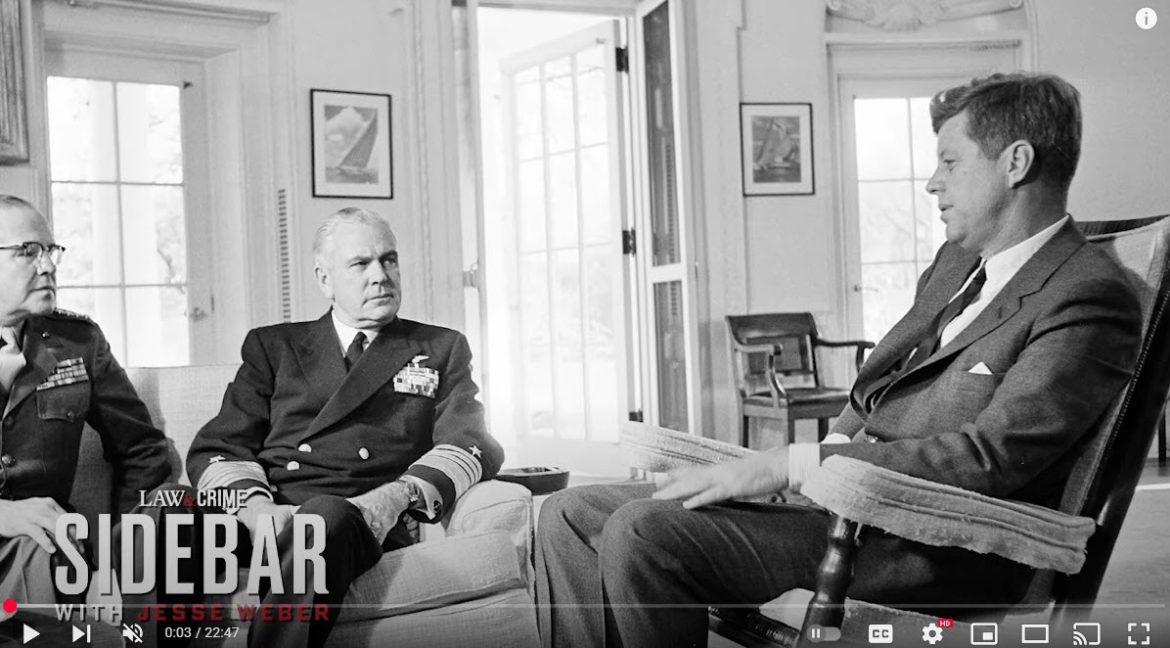In a significant development, the National Archives releases over 63,000 pages of previously classified documents related to the assassination of President John F. Kennedy. This extensive document dump offers fresh insights into the activities of the Central Intelligence Agency (CIA) during the 1960s, particularly concerning Lee Harvey Oswald, the alleged assassin. Law&Crime’s Jesse Weber, in collaboration with University of Virginia professor Larry Sabato, analyzes these documents, uncovering seven notable revelations.
First, the files confirm that the CIA closely monitors Oswald before Kennedy’s assassination. Records show the agency intercepts Oswald’s communications with Soviet and Cuban embassies, highlighting his international movements and potential motivations. These documents confirm the CIA is aware of Oswald’s travels and activities as early as 1963, raisihttps://youtu.be/rkPfpl0plCgng questions about how closely his actions were being tracked—and whether more could have been done to prevent the assassination.
Second, the files detail “Operation Mongoose,” a clandestine effort aimed at destabilizing Fidel Castro’s communist government in Cuba. Authorized during the Kennedy administration, the operation includes plans for sabotage, propaganda, and even assassination attempts. This program highlights the intensity of U.S. anti-communist efforts during the Cold War and the blurred lines between foreign policy and covert action.
Third, a lesser-known aspect of international cooperation is revealed: Mexican President Adolfo López Mateos secretly works with the CIA, despite his public anti-U.S. rhetoric. This alliance allows American intelligence operations to take place on Mexican soil, particularly in monitoring communist activities and Cuban operatives traveling through Mexico City—a key hub during the Cold War.
Fourth, the documents contain a 1961 memo from White House adviser Arthur Schlesinger Jr., proposing the dismantling or restructuring of the CIA following its disastrous role in the Bay of Pigs invasion. This reflects a high-level distrust of the agency within Kennedy’s inner circle and reveals the extent to which the White House is considering systemic intelligence reform even before JFK’s assassination.
Fifth, the CIA conducts surveillance on then-Attorney General Robert F. Kennedy, including the bugging of a Maryland residence where RFK is expected to meet with Cuban exiles. This domestic surveillance further illustrates the agency’s broad reach and internal rivalries within the U.S. government during that era.
Sixth, the documents expand on a long-suspected detail: the CIA’s Mexico City station records Oswald’s phone calls with Cuban and Soviet officials just weeks before the assassination. These calls raise alarms within the agency, yet senior officials in Washington reportedly order that the information be suppressed to avoid diplomatic fallout with the Mexican government. This revelation underscores the political sensitivity surrounding Oswald’s international ties and the geopolitical balancing act faced by U.S. intelligence agencies.
Seventh, and perhaps most concerning from a privacy standpoint, is the exposure of personal data within the release. Social Security numbers, home addresses, and employment information of several government employees—some still living—are included in the files without proper redaction. Privacy advocates and historians quickly condemn the oversight, warning that it could have legal and ethical consequences. Federal officials promise to review and reprocess the affected documents, but the incident underscores the risks of massive document declassifications without stringent quality control.
While none of these revelations definitively rewrite the narrative that Oswald acted alone, they paint a far more complicated picture of the global political climate, intelligence community dynamics, and internal U.S. government friction surrounding the Kennedy presidency. They also fuel ongoing public skepticism about whether all relevant facts have ever truly been disclosed.
This release comes amid longstanding pressure to make JFK-related records public. Under the 1992 JFK Assassination Records Collection Act, all files were originally slated for full release by 2017. However, both the Trump and Biden administrations delay portions of the release, citing national security concerns. The Biden administration commits to a phased strategy, culminating in this latest March 2025 release.
With scholars, journalists, and the public still pouring over the thousands of pages, the files continue to shape the broader understanding of one of the most pivotal and mysterious moments in American history.
Sources:
- https://www.wsj.com/politics/national-security/jfk-files-takeaways-41aebb14
- https://www.reuters.com/world/us/trump-release-80000-pages-jfk-assassination-2025-03-18
- https://apnews.com/article/cc8dd12c80c2b2b804c4fc60d92e8b7d
- https://apnews.com/article/jfk-assassination-files-released-trump-cia-f96185859f3d38b20d83a481d583766d
- https://www.youtube.com/watch?v=rkPfpl0plCg



